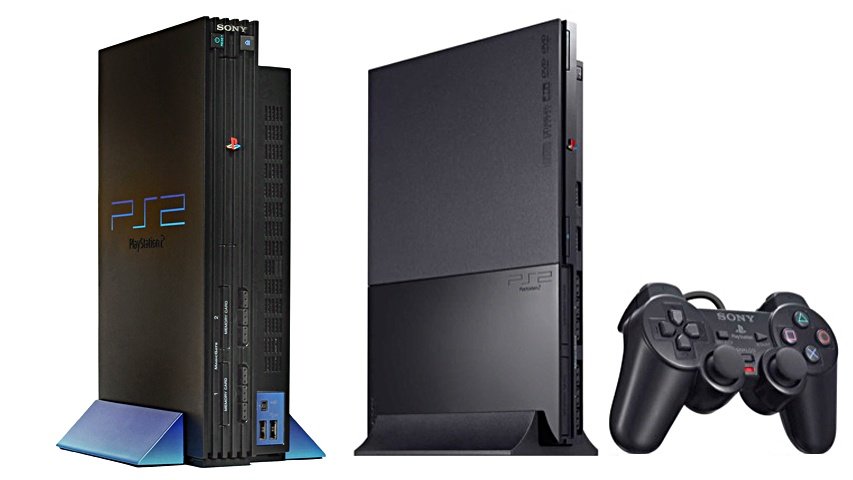I just don't agree with this analysis.
Valve, who has worst first party offerings than Microsoft would somehow have more success, despite not being able to subsidize hardware prices as much?
Just because they have people on Steam doesn't mean these people are going to buy their hardware to play in a specific console form factor.
There is really no way to make a console like PC at scale with the same specs and price as a console.
I think people ignore the barriers of entry in the console market a bit too much. Microsoft failed despite their efforts for 20+ years. Sega failed despite being beloved by fans and having some great software. Apple and Tencent would find it difficult to enter the market too and it's a terrible time to enter the console market when the console market is going to shrink in the next 15 years.
Gaming is going to move to streaming by the end of 2040.
Wait...are we really saying DOTA 2 & Counterstrike 2 are worst than...Redfall? Because I'd argue those games are very high-quality and at least up there with Microsoft's best. Now yeah, Microsoft have MORE games and more variety in their game releases than Valve by far. But games like Halo Infinite wish they were even half as popular as DOTA 2, and even COD wished it were nearly as stable as Counterstrike in terms of community sentiment and future prognosis.
About the hardware stuff...well I do acknowledge that Valve can't subsidize the hardware the way Microsoft can, but what specs would they really need in order to be competitive? They could take a more indirect approach i.e Nintendo. For example maybe they do a console and don't push for high-end graphics, but have other SKUs which do. And yeah, bringing back some of the idea with Steam Machines, have other manufacturers make their variants.
But this time they take their lessons with the Steam Deck with them, and the bigger selling point would be these are Steam-powered consoles you can also use like PCs. Kind of what I would envision Microsoft doing actually with gaming hardware going forward, where with them it'd be Windows-powered gaming-centric mini-PCs/NUCs/laptops/tablets etc. built around a common spec blueprint with flexibility in customization options for OEMs (& Microsoft). So I guess in both the case of Microsoft & Valve, it's not so much about being 'direct' competitors for PlayStation, but more indirect competitors in adjacent markets.
They can't take the subsidization path like Sony can, or produce at the volumes Sony & Nintendo do, but they can have flexibility in their performance configs to where, yeah, they can have a $300 box, a $500 box, a $1000 box, or systems with different design profiles at those price brackets, made for comfortable PC gaming (at least at the level Steam Deck provides) and can also function as a regular PC. Just don't expect a $500 Steam Box to have the gaming performance of a $500 PS6; you might need the $800 or $1000 Steam Box to get that type of performance but you have other benefits to justify it even with the lower volumes (Steam, full functioning Linux distro, etc.).
As for the console barrier issues you're mentioning, well you listed a bunch of failures who failed not due to price but because they could not provide value proposition for the prices they were asking. No one really wants an Xbox console that is just an inferior PlayStation and has no actual exclusives. No one wanted a Dreamcast because SEGA offered bad value for Saturn relative to PS1 & N64 (I LOVE the Saturn, FWIW), and made similar mistakes with the 32X (should've never been released) and SEGA-CD. Apple did try back in the '90s with the Pippin, but it was a half-measure and basically a repackaged Mac with bad software support outside of the Marathon games.
Apple, Tencent whoever would have difficulty sure, just like any entrant, but if they made sure the value was there, they'd find some success. Meta in a way proved that a new entrant could work; Quest 2 sold more in a year than Xbox Series S & X did combined (10 million vs. 7.2 million). Meta's got other problems with their VR line particularly on software front (VR software sales are just puny in general), but they did grow the Quest install base by great measure, even if it also required subsidization on their part.
So there are things a new competitor would have to be mindful and willing to do, but it's not
impossible to gain footing.
I don't think think they beat Nintendo

. Nintendo hasn't axed any games nor have they laid off any of their employees while seemingly every other game conpany out there has had significant layoffs. Switch was a massive success on the same level as the PS4.
Microsoft is done but i think that has more to do with their own incompetence. They had a good strategy with the 360 and had they just stuck to it Sony would be the ones leaving the industry and MS would've had the whole console market to themselves.
Nintendo's cancelled plenty of games. I'm still waiting for Mother 64, just as one example.
As Much as we all love Nintendo, the Wii-U disaster wasn't that long ago. The way they transitioned from Wii is not that long ago. Even Nintendo is taking their time moving off Switch. Hopefully they nail it, but there is just as much chance they mess it up. Nintendo never does the expected or takes the obvious course. I am sure they are fighting interally to add gimmicks and not stay boring with an updated Switch release. Nintendo can be it's own worse enemy.
Sony has historically taken advantage of other companies mistakes and twisted the dagger. When an opportunity opens, they pounce. N64 cartridges . Xbox One, Game sharing, Dvd, you name it. They play it safe generally.
I think you're kind of not giving Sony enough credit. They didn't decide on CDs after N64 went with carts; Nintendo's the one who decided to stay with carts after knowing both Sony & SEGA were using CDs. That's why they were showing off the 64DD as early as 1995; they KNEW going with carts was a mistake from the get-go and the 64DD was their way of supplementing the cartridge's limitations.
With DVD, Kutaragi was determined for it to be in the PS2 from the get-go; SEGA knew other companies were going to use DVD; IIRC the M2 was rumored to have DVD functionality, and then Project X (later known as NUON) was revealed with DVD functionality even before the PS2. Both of those were before Dreamcast launched in Japan IIRC.
So, SEGA knew DVD was going to be the real deal, but they decided against it early on due to costs. That was their choice; Sony using DVDs for PS2 wasn't decided on because they found out SEGA wasn't using the tech, and I don't remember them ever directly teasing Dreamcast for lack of DVD support.
The "This is how you share games" bit, though? Yeah, that one was definitely a dagger aimed at Xbox. But Microsoft earned that one; they had 8th gen basically secured by the mid-point of 360's gen, and even towards the end the odds were slightly in their favor at least in most Western territories (especially US and UK). And then the debacle of the reveal happened.
Microsoft earned that smoke.








